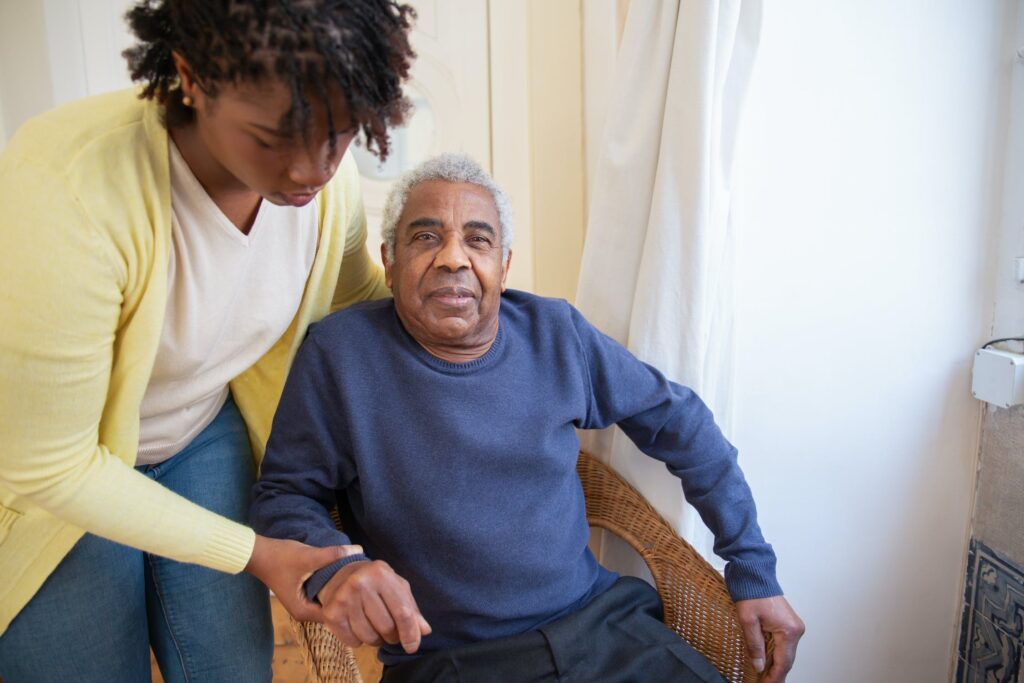Care homes and in-home care for the elderly may sound similar, but they are two very different services. Choosing the right care assistance for your elderly family member or friend can be challenging. No matter the choice, it can be a significant adjustment to get used to. This is why it’s essential that you find the right care for the needs of your loved one.
Discover below the difference between in-home care for the elderly and the support that a care home provides.
What is Temporary In-Home Care?
In-home care offers an alternative service to standard care options by looking after a person from the comfort of their own homes. Carers will go into the house and help with day to day aspects of living like personal care and companionship. It’s flexible and can be from simple visits to 24/7 live-in care. Home care can be arranged to support daily routines and it can be adapted over time for any requirements.
In-home care for the elderly refers to receiving support from professional carers within your current home, it’s the most popular option amongst the elderly as it’s care from the privacy of their own homes. Home care services provide companionship for your loved ones and allow them to continue doing the things they enjoy. There is no need to change any aspect of their daily lives, other than making room for a new carer in the house.
Other benefits of in-home care for the elderly include:
- In-home care for the elderly allows your loved one to remain in their own home and retain their independence
- Personalisation of activities, social abilities and routines
- One-to-one care and allows flexibility
- Around the clock support, including 24 hour home care, being able to provide your loved one with appointment making, get-togethers and personal care.
- Remain comfortable in a familiar environment
- Additionally, those who suffer from dementia benefit from specialist home care. This is due to them being surrounded by their own belongings in a home full of memories like photographs, books and familiar scents.
Visits can be as long as you like with short visit home care; Verina Daly Care experts and trained carers will support your loved ones with various life and household tasks from medication to housework and general admin.
What is a Care Home?
A care home differs from in-home care for the elderly. Care homes require someone to leave their own home and belongings and move into a facility specifically for elderly care. It’s a broad term but is often a permanent solution for individuals who are unable to care for themselves in their own homes. Residents in care homes have their own bedrooms and bathrooms but share communal areas like living spaces, kitchens and gardens with others.
Care homes offer a secure place for a resident to stay, with someone on hand day and night for emergencies. However, not all care homes are equipped to cater for particular needs which is something to be aware of if you are considering this transition for yourself or someone you love.
The number of older people living with physical and mental health problems continues to rise. Care homes play an important role as more than 400,000 elderly people currently live in independent care homes throughout the UK. It’s an option if the person feels that living in their own home isn’t a practical option or the care is too much to stay in their homes.
Care homes lift the stress for current carers, taking the responsibility away. They provide reassurance that your loved one is being taken care of, Although, various in-home care services do offer important respite care for carers who need a well-deserved break.
Although care homes come with benefits, there are disadvantages, too. Even though care homes have many rules to ensure that their residents keep safe, this can impact personal independence dramatically and reduce the amount of freedom. For example, many care homes do not allow couples to remain in the same room or include a no pets regulation which can be damaging to mental health. It’s important to discuss your loved one’s independence before making any big decisions.
Which Care Service is Best?
Deciding between in-home care for the elderly or at home care can be a tough decision. It’s important to consider the health of your friend or family member when making this choice. It’s also worth evaluating their daily routines to get an idea on when and where they need extra help and support. Whether you choose a care home or in-home care, your decision should be based on the person’s needs. Oftentimes a little additional support will be enough to help, whilst the individual is able to maintain independence, their companionship and their homes.
In-Home Care for the Elderly
We are now taking consultation booking for anyone that wishes to discuss our in-home care for the elderly services in more detail before committing to anything. With specialists in caring for those with Dementia, Alzheimer’s and end of life, our team at Verina Daly Care supply in-home care for these situations.
If you have any further questions or queries about how our in-home care works, then you can contact us and speak to one of our friendly care experts on 02392 632393 or email us at admin@verinadalycare.co.uk.


